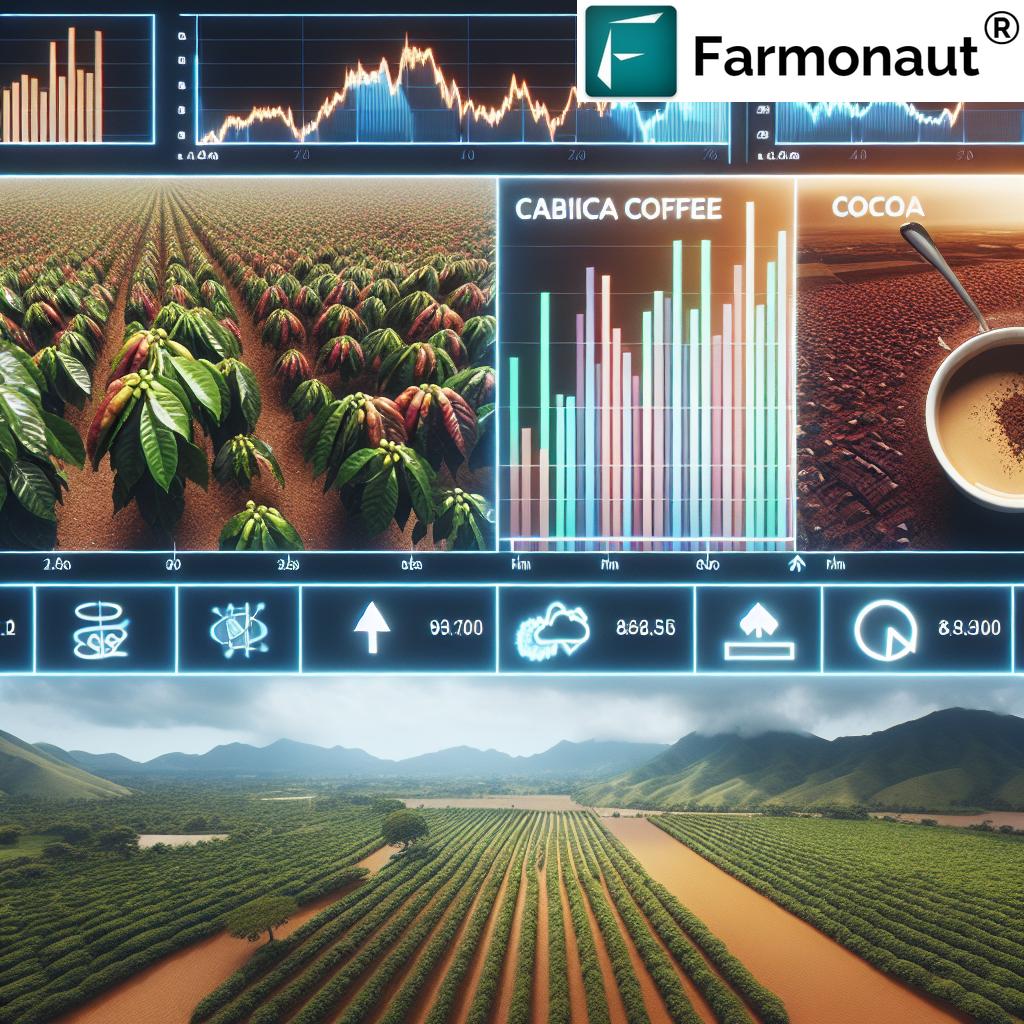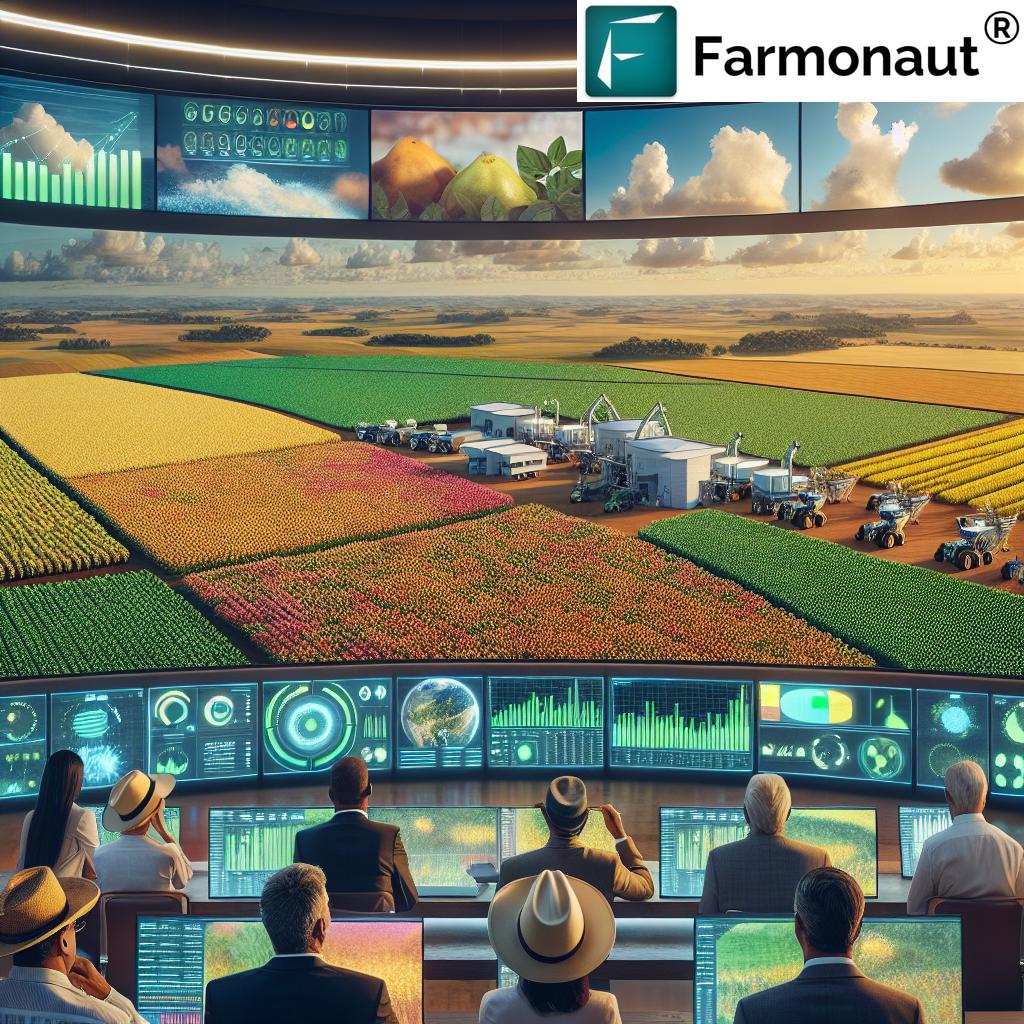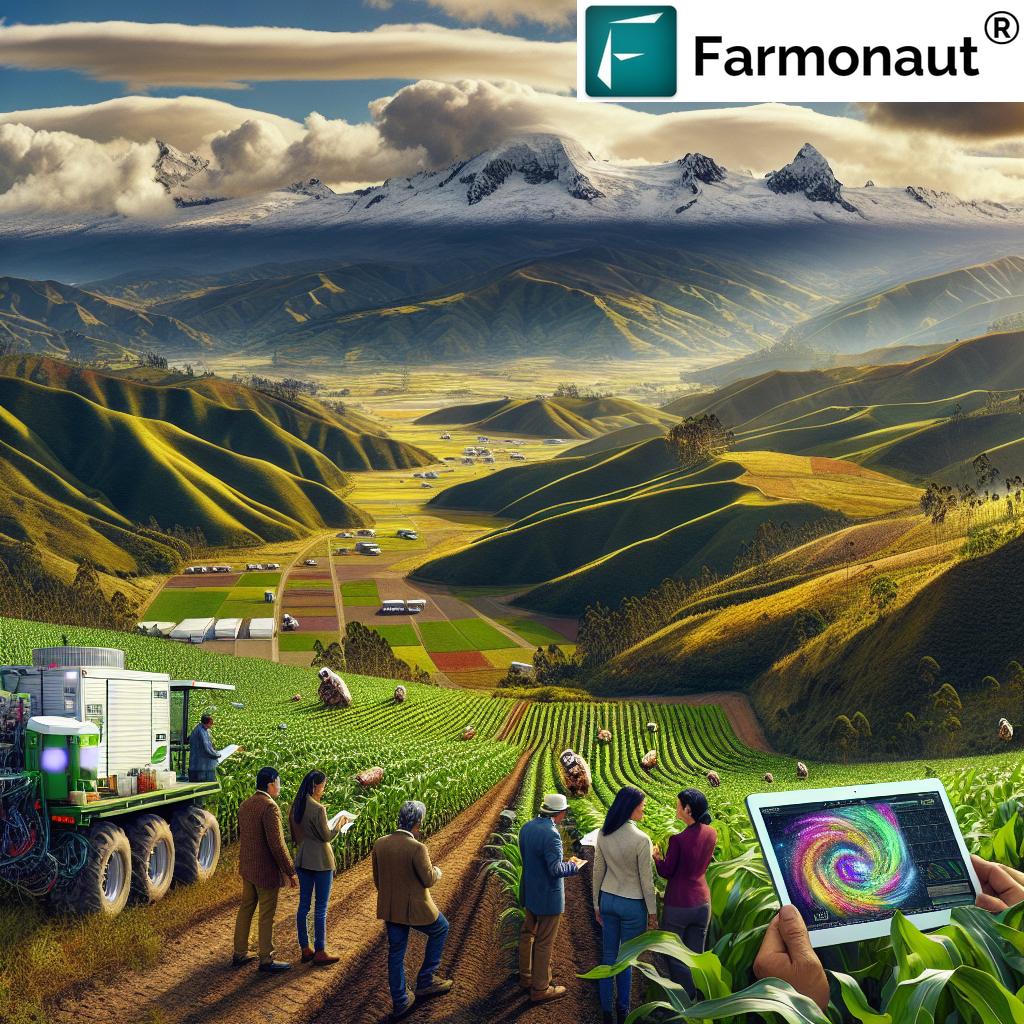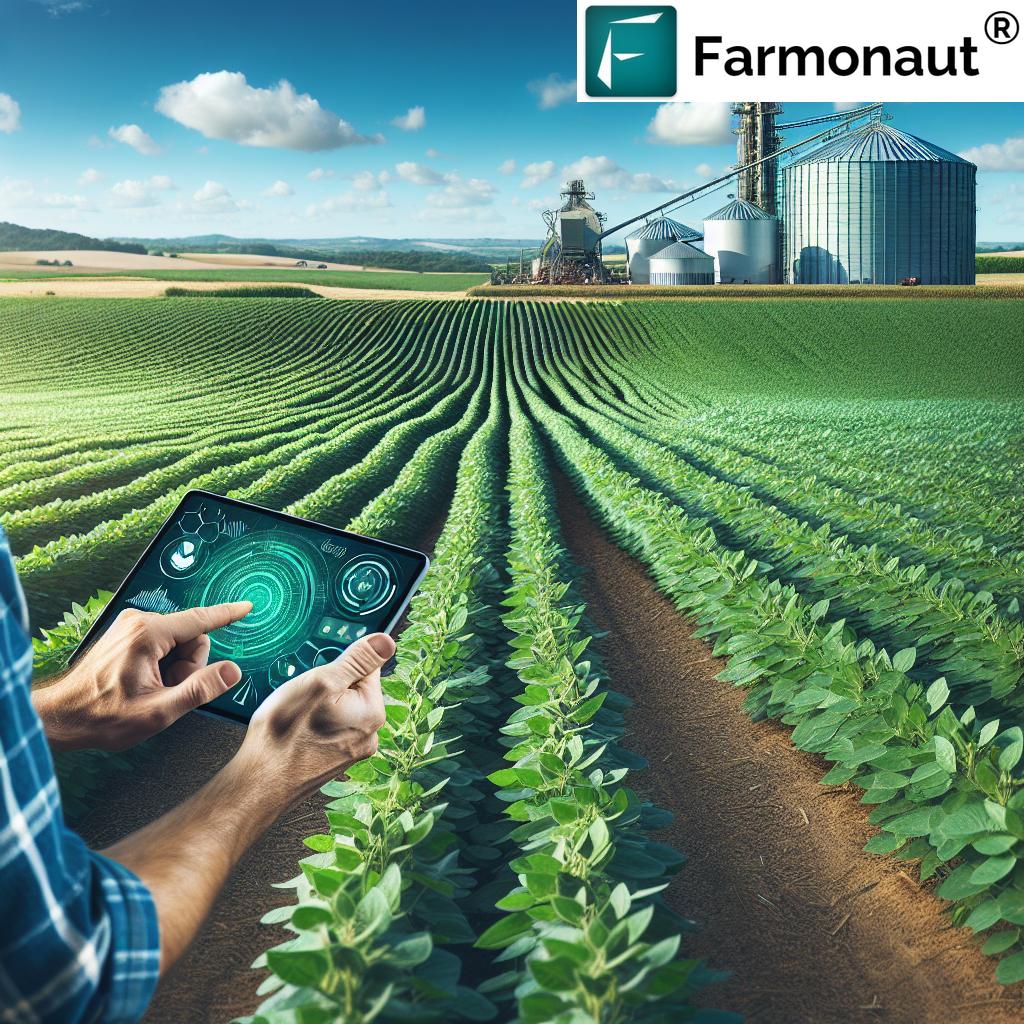Coffee Quality Assurance: Brazil Plantation Farming
“Brazil’s coffee plantations will utilize over 50% tech-driven quality checks by 2025 for premium bean consistency.”
Introduction: Coffee Quality Assurance in Brazil
Coffee quality assurance and sustainable coffee farming Brazil are entering a transformative era in 2025. As the world’s largest producer, responsible for nearly one-third of the global coffee supply, Brazil remains a pivotal producer in the global coffee sector for both its economic significance and influence on the standards that ensure consumer satisfaction. This article explores the intricacies of coffee quality assurance within Brazilian plantations, with a 2025 perspective, assessing how innovations, sustainability initiatives, and changing consumer expectations are shaping the future of coffee farming Brazil.
Our journey highlights why quality assurance is no longer just about taste—but also about traceability, sustainability, and technology integration for the rising demands of the global consumer.
The Coffee Plantation Landscape in Brazil
With a diverse and expansive geography, Brazil’s coffee plantations provide optimal growing conditions for both Arabica and Robusta bean varieties. Key regions such as Minas Gerais, São Paulo, and Espírito Santo dominate production, each offering unique microclimates for bean development.
- Minas Gerais: The heartland of Brazil’s specialty coffee—renowned for high-quality beans and balanced cup profiles.
- São Paulo: Home to a rich tradition of coffee farming and pioneering technological innovations in cultivation.
- Espírito Santo: Leader in Robusta (Conilon) production, especially adept at adopting modern agronomic practices for sustainable farming.
Over the past decade, these regions have moved beyond conventional agricultural practices, embracing precision farming, advanced monitoring, and investment in infrastructure to strike the fine balance between quantity and increasing focus on premium coffee quality assurance.
In 2025, Brazil’s plantations are a dynamic interplay between modern quality control and a deep-rooted tradition of excellence, ensuring Brazil remains competitive and continues to meet rising global expectations.
Importance of Coffee Quality Assurance in Brazilian Plantations
The importance of coffee quality assurance has never been higher in coffee farming Brazil. The modern consumer doesn’t just demand taste—they also look for traceability credentials, environmental responsibility, and proof of sustainability. Quality assurance encompasses a rigorous process from seed to cup:
- Seed Selection: Only the best genetics are chosen to create resilient, flavorful beans.
- On-farm Monitoring: Crop health, soil conditions, and ripeness checks are frequent and increasingly tech-driven.
- Harvesting: Selective hand-picking or high-precision mechanized harvest ensures only ripe cherries are taken—this is pivotal for maintaining quality.
- Processing: Includes immediate pulping, advanced drying techniques, and careful handling to preserve integrity and flavor.
- Post-Harvest: Cupping labs, defect sorting, and moisture content testing are all part of comprehensive quality control protocols.
These processes are increasingly standardized according to global standards, enhancing the reputation of Brazil’s supply chain and offering consumer satisfaction for both specialty and commercial markets.
Key Parameters in Coffee Quality Assessment
Coffee quality assurance begins with scientific measurement. Producers and laboratories assess key parameters at every stage:
- Bean Size: Larger, uniform beans command higher value and better cup profile.
- Moisture Content: Target range is typically 10-12% for green coffee. Proper drying prevents defect levels and fermentation defects.
- Defect Levels: Sorting for broken, insect-damaged, or undeveloped beans ensures batch integrity.
- Cup Profile: Acidity, aroma, body, and flavor characteristics are scored through professional cupping.
- Profiles and Inconsistencies: Detailed auditing catches inconsistencies across batches for tighter quality control.
Technology and data-driven practices now supplement traditional expertise—giving producers granular control over picking, drying, and even cupping labs’ evaluation processes.
Access advanced crop and soil insights anytime, anywhere—with Farmonaut’s Web and Mobile Apps!
Technological Innovations Shaping Coffee Quality Assurance in Brazil
Technology in coffee plantations is evolving rapidly. By 2025, Brazilian producers employ a suite of innovations to ensure superior bean quality while bolstering sustainability and traceability:
Remote Sensing & Satellite Monitoring
High-resolution satellite imagery (see large-scale farm management solutions) and drone technologies are used for:
- Real-time Crop Health Monitoring: Detecting pest infestations, disease outbreaks, and environmental stress factors before they impact bean quality.
- Precision Irrigation: Optimize water use by monitoring soil moisture across fields, reducing variability in bean quality.
- Yield Forecasting: Predict bean output quantity and quality for broader sector supply chain planning.
Artificial Intelligence and Machine Learning in Quality Assurance
- Predictive Analysis: AI platforms combine satellite data and on-ground sensors to forecast quality levels, optimize nutrient management, and schedule harvesting.
- Automated Defect Detection: Advanced vision systems and AI-driven sorters quickly detect defect levels and production inconsistencies in beans during processing.
- Blockchain-Based Traceability: Modern supplies use blockchain for product traceability: See how blockchain empowers the supply chain from farm to cup.
For Brazilian plantations seeking to maintain a high standard and market their coffee as truly sustainable and premium, adopting these technologies is becoming essential in 2025.
IoT Soil and Environmental Sensors
- Continuous Monitoring: Internet-of-Things (IoT) sensors feed real-time data on soil moisture, nutrition, temperature, and other key indicators to optimize growing conditions.
- Data Integration: Linked with crop analytics platforms for timely, evidence-based decision-making in production.
Automated Sorting and Processing Systems
- Optical Sorting: Machine vision identifies defects and removes sub-par beans far more efficiently than manual methods.
- Precision Drying: Controlled drying technologies ensure each batch falls within the correct moisture parameters, protecting delicate flavor compounds and bean integrity.
These technologies help Brazilians maintain a positive cup profile and improve operational efficiency, making Brazilian coffee a gold standard in global premium supply chains.
Want to verify every step from bean to cup? Blockchain-based traceability tools help ensure transparency and trust in modern coffee supply chains.
“Sustainable practices on Brazil’s coffee farms could increase premium-grade bean output by 30% by 2025.”
Comparison Table of Key Quality Assurance Technologies in Brazilian Coffee Plantations (2025)
| Technology Name | Primary Function | Estimated Adoption Rate (2025) | Quality Improvement Impact (Estimated %) | Sustainability Benefit | Notable Example/Brand |
|---|---|---|---|---|---|
| Satellite Monitoring | Crop health & growth tracking | 58% | 16–22% | Reduced input usage, targeted interventions | Farmonaut, SatAgri |
| IoT Soil Sensors | Real-time soil & environmental data | 44% | 10–15% | Minimized water waste, improved soil health | SenseAgri, SmartField |
| Blockchain Traceability | Secure & transparent supply chain tracking | 38% | 12–18% | Enhanced consumer trust, reduced fraud | Farmonaut, AgroBlock |
| Automated Sorting Systems | Defect detection & grading | 62% | 20–25% | Reduced waste, better batch consistency | SortX, BeanVision |
This table compares leading technologies, revealing how adoption rates and innovative practices maximize both coffee quality assurance and sustainability for Brazil’s plantations in 2025.
Traceability, Blockchain, and Consumer Demand
Traceability is central to modern coffee quality assurance. Increasingly, buyers want proof of bean origin, processing standards, and sustainable practices. Blockchain technology is a pivotal solution:
- Every step from farm input to cup can be logged, creating an immutable digital trail.
- Consumers, roasters, and exporters gain confidence in the authenticity and sustainability of their coffee.
- Helps Brazilian producers compete in premium and organic coffee segments worldwide.
Farmonaut’s platform, for instance, integrates blockchain-based traceability directly into its agricultural monitoring tools, closing the gap between farmers and quality-driven consumers. If you’re interested in robust traceability, discover more about their traceability solutions.
Sustainable Coffee Farming Brazil—Practices and Environmental Stewardship
Sustainability underpins both quality and the future resilience of Brazil’s coffee sector. Coffee plantations are rapidly adopting sustainable farming practices to meet global expectations and improve bean quality:
Key Sustainable Practices Include:
- Agroforestry & Shade-Grown Techniques: Planting shade trees provides natural pest control, enhances soil health, and increases bean flavor complexity by slowing maturation.
- Soil Health Improvement: Cover cropping, organic amendments, and reduced chemical inputs maintain soil fertility and reduce erosion. This also leads to better moisture retention, which is crucial for consistent bean development.
- Organic Farming: Certification standards (Organic, Rainforest Alliance, Fair Trade) are increasingly pursued to align with global consumer demands.
- Carbon Footprinting: Tracking and reducing emissions is now integral. Curious about how Brazilian coffee farms can monitor and minimize their environmental footprint? Check the carbon footprinting solution for actionable insights.
- Intelligent Water Management: Drip irrigation, IoT-based soil moisture checks, and rainwater harvesting help optimize water usage—crucial as climate variability rises.
Long-term Benefits of Sustainability Initiatives
- Stabilizes yields amid climate change challenges
- Boosts premium-grade bean output
- Enhances biodiversity and farm ecosystem resilience
- Improves global market access, especially for eco-conscious consumers
Brazilian plantations increasingly see sustainability and quality assurance as two sides of the same coin.
Challenges and Opportunities Shaping the Future
Even with all these advances, the Brazilian coffee sector faces significant challenges as we advance into and beyond 2025:
- Climate Change: Unpredictable rainfall and rising temperatures threaten both yield stability and bean quality. Development of climate-resilient cultivars is ongoing.
- Economic Pressures: Input costs and infrastructure needs for tech upgrades may be out of reach for some smallholders.
- Supply Chain Vulnerabilities: Global trade disruptions (e.g., pandemics, logistics challenges) can threaten coffee shipment reliability and income for farmers.
- Maintaining Consistency: As scale increases and more producers enter specialty segments, batch-to-batch consistency in characteristics must remain a top priority.
- Farmer Education: Empowering farmers to use new technology tools effectively is critical for sustained success. Apps, advisory services, and real-time analytics play a growing role (see Farmonaut’s satellite-based crop verification for loans and insurance).
Opportunities Ahead
- Infrastructure Modernization: From solar-powered drying units to mechanized gentle harvesting, infrastructure investment is opening new possibilities for quality enhancement.
- Data-Driven Decision Making: Wider access to mobile and satellite platforms is democratizing insights for small and large producers alike.
- New Generations of Farmers: Digital-native, environmentally aware, and entrepreneurial, the future of Brazilian coffee is in capable hands.
How Technology Partners like Farmonaut Support Brazilian Coffee Quality Assurance
Companies like Farmonaut are leading the way in democratizing satellite-driven agriculture technology, offering solutions that help Brazilian plantations optimize both quality assurance and sustainability:
- Satellite-Based Monitoring: Delivers actionable insights for crop health, soil conditions, and even real-time environmental impact. Farmonaut empowers plantations to improve their harvest timing, detect pest outbreaks early, and maximize quality at every step.
- AI & Advisory Systems: Platforms such as Jeevn AI recommend best practices based on dynamic, field-level data—improving resource use and protecting bean integrity.
- Blockchain Traceability: By integrating traceability protocols, we enable owners and managers to provide batch-by-batch transparency to global buyers.
- Fleet & Resource Management: Our system helps optimize use of vehicles and farm equipment, saving costs and reducing carbon emissions. Interested? See the fleet management service.
- Environmental Impact Monitoring: We support coffee plantations in monitoring and reducing carbon footprints, helping them prove their environmental credentials.
- Scalable & Affordable: Our tools are accessible via web, Android, iOS apps, and via API. See more or try integrations using our API and developer docs.
Farmonaut empowers producers, businesses, and governments to meet the full range of coffee quality assurance and sustainable farming needs in Brazil’s rapidly changing 2025 landscape and beyond.
Frequently Asked Questions (FAQ): Coffee Quality Assurance, Brazil Plantation Farming & Technology (2025)
What is coffee quality assurance, and why does it matter in Brazil?
Coffee quality assurance refers to the systematic processes used by Brazilian plantations to guarantee that their beans meet global standards for flavor, consistency, traceability, and sustainability. This is essential because Brazil is the world’s largest coffee producer and must meet the evolving expectations of global buyers and environmentally conscious consumers.
How does technology enhance quality assurance in Brazilian coffee plantations?
Technology—including satellite monitoring, IoT sensors, AI analytics, and blockchain—provides real-time, data-driven insights into crop health, soil integrity, and supply chain traceability. These innovations detect problems early, optimize resource use, and deliver verifiable results for buyers and certifiers.
What are the main challenges facing Brazilian coffee farming in 2025?
The sector faces significant challenges from climate change (unpredictable rainfall, rising temperatures), infrastructure modernization needs, quality consistency at scale, and increasing pressure for verified traceability and sustainability.
Can smallholders access advanced coffee technology, or is it just for large farms?
In 2025, technology is more accessible than ever—even small and medium-scale producers in Brazil can use web/mobile apps for satellite crop monitoring, quality assurance, and resource management on a subscription basis.
Why is blockchain-based traceability highlighted for coffee plantations?
Blockchain creates immutable, tamper-proof records for every stage of coffee’s journey from plantation to cup, which assures buyers and boosts Brazilian coffee’s global reputation for quality and ethical production.
How does soil health influence coffee quality?
Healthy soil is fundamental for optimal bean development—affecting moisture, nutrition, and resistance to disease. Sustainable practices that maintain soil organic content increase bean quality and support long-term farm viability.
Conclusion: A 2025 Perspective on Quality Assurance in Brazil’s Coffee Sector
As we look to 2025 and beyond, the future of coffee quality assurance in Brazil plantation farming is a dynamic blend of age-old tradition and modern technology. Brazilian farms apply rigorous quality protocols—from seed selection to post-harvest cupping labs—while investing in innovations that enhance sustainability, traceability, and environmental stewardship. The rise in tech adoption empowers even modest producers to offer premium beans that meet elevated global standards.
At Farmonaut, we contribute to this transformation by making satellite-driven insights, AI advisory, blockchain-based traceability, and environmental monitoring affordable and accessible for everyone—supporting Brazilian plantations in delivering on the promise of quality, sustainability, and resilience for generations to come.













